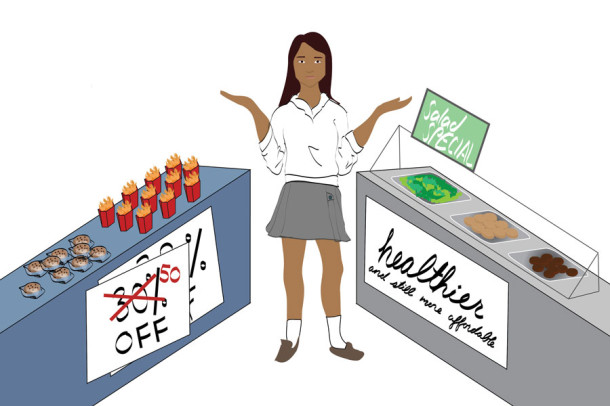Competition would lower cafe costs
I was meeting with Alexander Hamilton at The Orient on Main Street to discuss our upcoming debate. We were discussing economics and how it affected our debate topic when we started talking about the idea of competition.
“First, we must establish what competition is as it relates to business. What do you think competition is?” I said.
“Competition is where two or more businesses fight until one goes bankrupt or gets bought out. It is really dog eat dog and is quite terrible,” Hamilton said.
“How can that be? McDonald’s and Burger King have been competing for a long time, and we still have both of them,” I said.
“One day one will win, just you wait,” Hamilton said.
While this conversation is only hypothetical, it shows some important ideas about competition and free market ideas.
Competition is healthy for the consumer and small businesses. Competition leads to lower prices and higher quality products and services. This is accomplished when competing companies must lower their prices, increase the quality of the product, or do both to get the consumer’s business.
Companies must be free from government subsidies, which are money given to companies by the federal government. Subsidies cause the creation of monopolies, or a situation in which a single company controls the entirety of a market. This destroys small businesses by creating corporate giants who are able to control an entire market and rip off consumers because of lack of competition.
The JC cafeteria is a prime example of how competition works and how monopolies are dangerous. Within the cafeteria there is one company, FAME.
The governing body of the school selected them to be the new food provider. Since they were new, they changed the food selection and the prices, raising the prices on most of the things I eat. So what they can do is charge whatever they want.
The only option I have is to either pay the higher price or pack my own lunch. They know they have to keep prices low enough so that I like the food just a little more than I like the money. Of course, that is the first sign of competition at work.
Another sign of competition is that JC chose the vendor based on a competitive choice. This, however, does not take things far enough. The competition must be allowed to flourish further. JC still creates a monopoly for at least a year. They have to keep the prices and quality of food at a certain level or they won’t get money.
Let’s take this idea farther. Imagine for a moment that there is a second food vendor at JC, for example, a sub shop named Subbies.
Subbies moves in and gets half the counter space within the cafeteria. They bring all their food pre-made. They start charging lower prices than FAME. Everyone starts buying food from Subbies. What is FAME’s response? They will have to start charging lower prices. Subbies will subequently have to start charging lower prices too.
That is why competition is good in a free market, because it causes the government to interfere as little as possible. A government that tries to restrict competition is a socialist government. It causes consumers to have to pay the highest prices possible.
Justin Hawkins is an Opinion Editor for The Patriot and jcpatriot.com.



